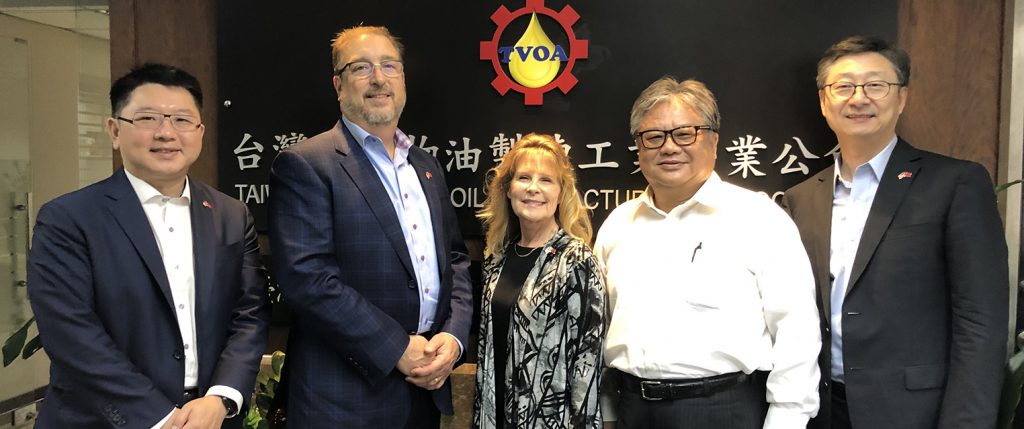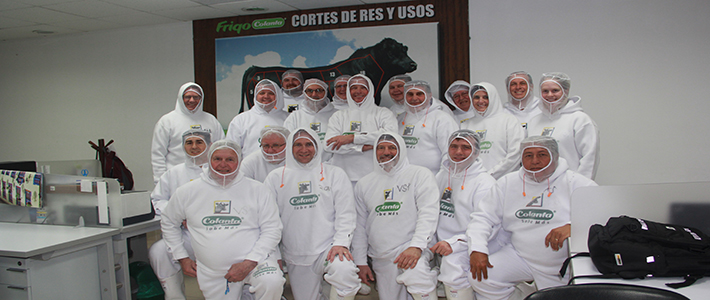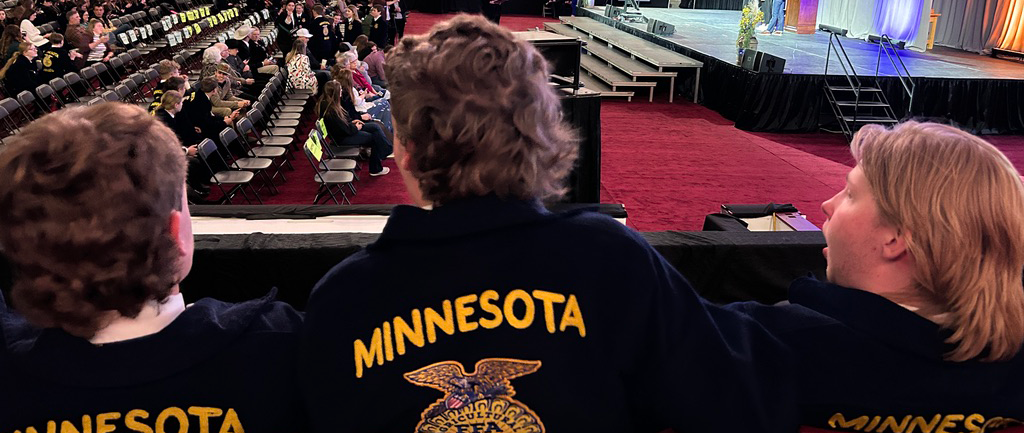In late August, Minnesota Soybean Director of Market Development Kim Nill met with a a group of 30 international guests representing buyers from developing nations interested in increasing purchases of U.S. soy. The delegation visited the farm of Scott Gillespie near Johnson, Minn.
They were all students at INTSOY, a longstanding soy checkoff-supported shortcourse at Northern Crops Institute (NCI) in Fargo, N.D., that teaches participants how to utilize soybean oil and other soy products, such as soymeal and soy flour in the manufacturing of food and feed products. The INTSOY shortcourse also includes instruction concerning how to add applicable soy to manufactured meat products such as sausages, etc.
Attendees represented The Philippines, Indonesia, Sri Lanka, Myanmar, Senegal and Ghana.
“Their employers are typically food or feed manufacturing companies that are wanting to learn how to add U.S.-origin soy components to the products their companies are already manufacturing, “Nill said. “This includes adding soy flour to baked goods, adding soybean oil to packaged food products to make them healthier for customers, or injecting soy protein into the inexpensive cuts of meat.”
The INTSOY week begins with a visit to a Minnesota farm, to enable students to gather firsthand information on the technology utilized to produce Minnesota soybeans; to assess current year soybean growth in fields; and to personally meet the farmer that grows the soy their company is increasingly purchasing.
“We appreciate being given the opportunity to show our world buyers and soybean customers what we do here on our family farm,” Gillespie said.
Gillespie said he took the opportunity to show them his farm, give the attendees tractor rides, as well as discuss the current trade issues with the overseas customers.
After the NCI-Fargo portion of the shortcourse where the 30-student INTSOY shortcourse learned how to manufacture soy-based animal feeds and soyfoods, they then traveled to South Dakota State University (SDSU) for their final three days of training where they learned how to add soy protein to meat products (e.g., sausages) in the SDSU Meat Lab.
Tags: trade, Trade Team






